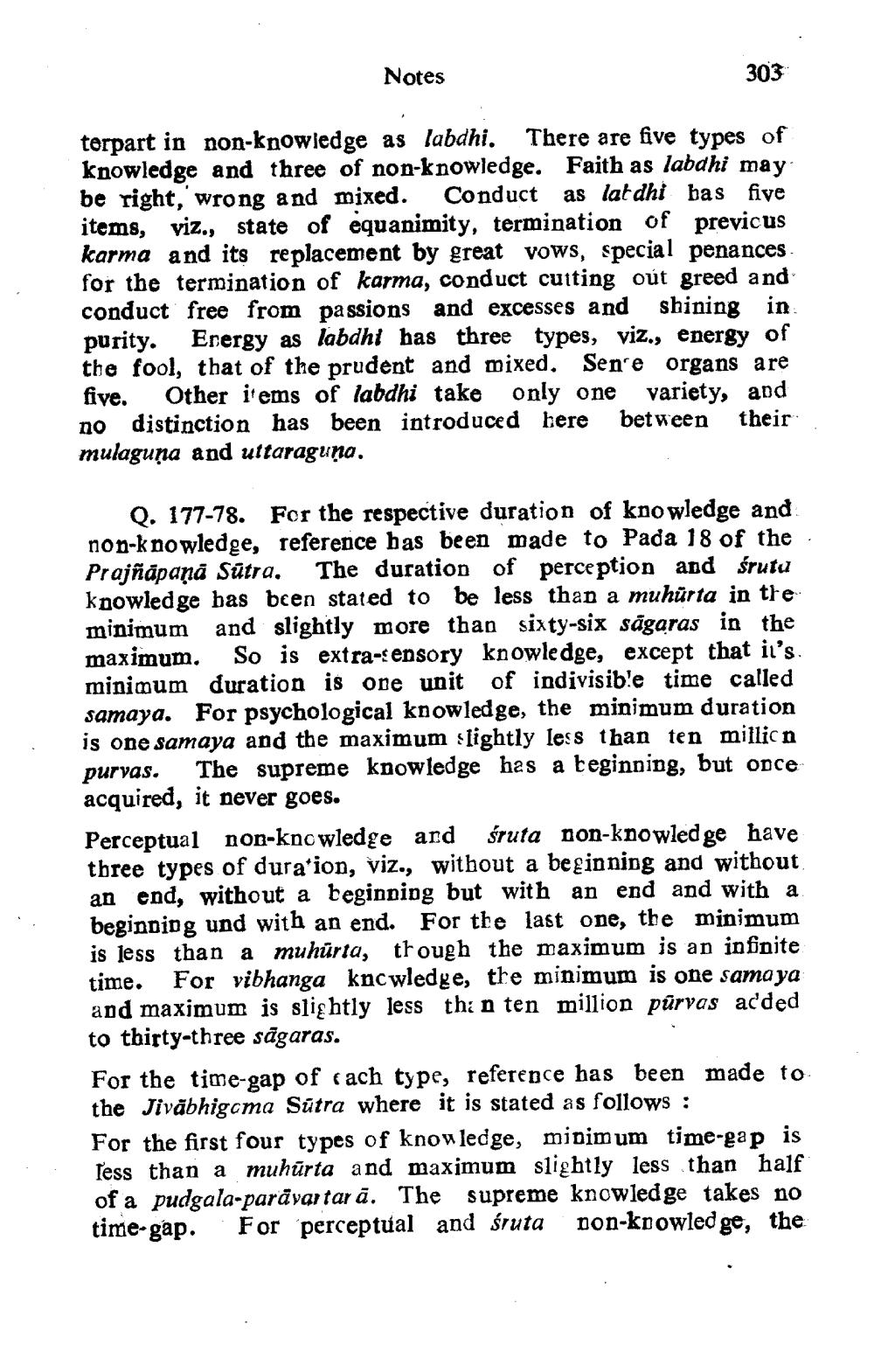________________
Notes
303
terpart in non-knowledge as labdhi. There are five types of knowledge and three of non-knowledge. Faith as labdhi maybe right,' wrong and mixed. Conduct as lat dhi bas five items, viz., state of equanimity, termination of previcus karma and its replacement by great vows, special penances for the termination of karma, conduct cutting out greed and conduct free from passions and excesses and shining in purity. Energy as labdhi has three types, viz., energy of the fool, that of the prudent and mixed. Sen'e organs are five. Other items of labdhi take only one variety, and no distinction has been introduced here between their mulaguna and uttaraguna.
Q. 177-78. For the respective duration of knowledge and non-knowledge, reference has been made to Pada 18 of the Prajñāpanā Sutra. The duration of perception and śruta knowledge bas been stated to be less than a muhurta in the minimum and slightly more than sixty-six sāgaras in the maximum. So is extra-sensory knowledge, except that it's minimum duration is one unit of indivisible time called samaya. For psychological knowledge, the minimum duration is one samaya and the maximum slightly less than ten millicn purvas. The supreme knowledge has a beginning, but once acquired, it never goes. Perceptual non-knowledge ard śruta non-knowledge have tbree types of duration, viz., without a beginning and without an end, without a beginning but with an end and with a beginning und with an end. For the last one, the minimum is less than a muhurta, though the maximum is an infinite time. For vibhanga kacwledge, the minimum is one samaya and maximum is slightly less than ten million pūrvas added to thirty-three sāgaras. For the time-gap of cach type, reference has been made to the Jivābhigcma Sutra where it is stated as follows : For the first four types of knowledge, minimum time-gap is less than a muhūrta and maximum slightly less than half of a pudgala-parāvantar ā. The supreme knowledge takes no time-gap. For perceptual and śruta pon-knowledge, the




